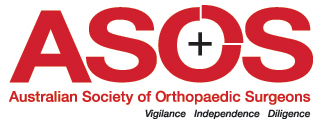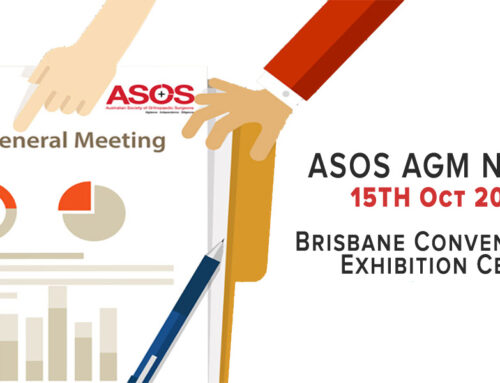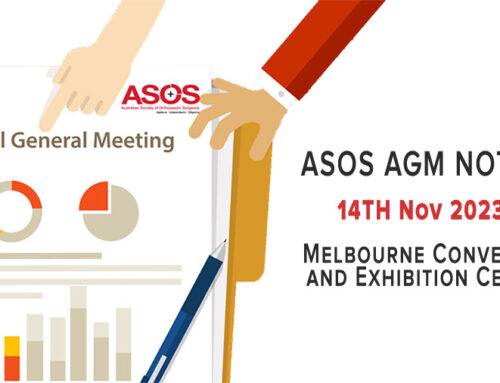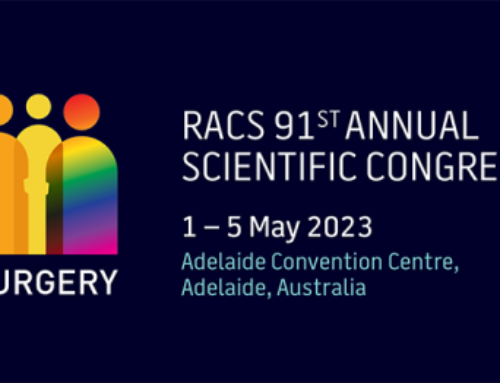Marriott Sydney Harbour Hotel
Dr John Harrison
21 August 2009
Tonight we honour a man and a great Australian who was both prescient and courageous.
In the words of JFK, at a moment in time, Bruce Shepherd, Orthopaedic surgeon, effectively responded to the words of Kennedy’s great speech from the early 60’s in which he challenged the world: “.. ask not what your country can do for you, but ask what you can do for your country”
What did he do?
He saw and heard and understood what an incoming government proposed to do with our health care system in the late ’70s, early ’80s and he was appalled at some of the deficiencies that the National Health Care System in the United Kingdom, where he had trained, had created; he decided Australia should not follow the same pathway to a poor public health scheme when we had an efficient, caring, compassionate one running with a lovely balance between charity through honorary attendances at public hospitals by surgeons and others, offset by the right of private practice in those institutions, which made it an honour and an extreme attraction to be good enough to get an appointment to those places.
He was absolutely right, as 25 years of rot and deterioration through Medicare has shown.
Again, what did he do?
He took a disparate bunch of Orthopaedic Surgeons and attempted to woo other Procedural Specialists and slowly made them aware of what was potentially coming by the proposed Government changes to Health Care Delivery encrypted in Medicare:
He adopted a public profile – despite being at the peak of his operating skills and prowess in practice particularly in the public sector and to a minor extent in the private sector only; he found the time and had the strength and leadership to criticise the incoming government for their grand scheme and trumpeted it’s faults; he debated and tried to educate the uncaring politicians and tried to educate his unhearing colleagues on the downside risks the new scheme had for our patients and for us.
The GRAND SCHEME involved National Legislation underpinned by the concept that Health care was a right for all, available in unlimited form through us at no cost. State enabling Legislation for Medicare, slightly different in each State, involving an onerous change in the relationship between government control on us, both where we worked in the public sector, and extending as far as our rooms, in a gross intrusion on us and a gross invasion and attempted domination of how we worked everywhere, as part of the control that had been planned.
Slowly some of the Orthopods began to become aware. He held a number of meetings to discuss his concerns, despite media criticism and lampooning of doctors caucusing with TV images of their luxury cars parked on adjoining streets while they were at meetings dominated some of the news items, with little balanced attempt to deal with the issue by the IVth Estate. It got to the point after Labor had assumed power in 1983 under Prime Minister Hawke and after fruitless discussions with the then very forgettable health Minister Neal Blewett, at the end of one of the sequential meetings we had been brought to by Dr. Shepherd under the umbrella of the infant, re-named political arm of the orthopaedic world, ASOS,he advised that we were not likely to change the government from it’s intended pathway, nor was the rising group of Australian Democrats in any way interested in the issues that he had raised and demonstrated of potential faults in the proposed system.
Having told us that he felt the government would not change, would not vary it’s intent, but was pressing on with it’s enabling Legislation, passing through each State Legislature in a form that was slightly different to frustrate any potential effort that any single group might have, of trying to challenge it legally on the grounds of “conscription” of the medical workforce, including through to the High Court, as the costs would be prodigious in mounting any such challenges and with the Federal AMA vacillating about taking a stand, particularly with Dr Shepherd dominating the airwaves, and TV in opposition to the scheme. He suggested that if our charitable honorary services could be so de-based by this new scheme and the community of Australia gifted our services for nothing on demand at any time, without consultation with us, then the only honourable thing for us to consider (although radical in it’s concept), was for us to leave a system where our services were not valued and thereby allow the government to either see the folly of it’s actions, or try and restructure the system to it’s own ends.
Dr Shepherd resigned from his cherished Public Hospital appointments at Auburn and Mona Vale Hospitals.
In a short interval of time, 69 other Orthopaedic Surgeons had the courage to join him and did, on 26th May 1984.
The initial resignations from the NSW Public Hospital System caused severe schisms. Friendships between orthopods and their wives suffered; severe strain and pressure on individuals were real as they saw the stark choice of action as either threateningly courageous, or outrageous: opponents (the majority) particularly core major teaching hospital group staff constantly voiced their objections to any action; for them, the denial or opposition was clothed in the attitude that you could not use patients in a hostage or bargaining approach to dispute resolution with Government as it meant an unethical and inappropriate dereliction of our time-honoured commitment to look after the Australian community as we had done for a long time and secondary objections about training dislocation were raised in muted voice.
It happened.
Within a week, the State Government moved special legislation to disallow the resignations, which we then repeated, putting the same 70 individuals under the spotlight; some suffered from union threats of withdrawal of services: ‘phones, water, gas etc and some were physically confronted at their rooms by irate people.
Well what happened?
Our orthopaedic community split; of the 70 that left there were about 268 orthopods then practising in New South Wales including some in country areas where the personal heat put on them and their families was intense and the teaching hospitals held and the peripheral hospitals walked. The net effect of that was that a concentration of orthopaedic trauma fell on the teaching hospitals and a backlog in service provision rapidly occurred, raising greater ill-feeling between those who chose to stay and those who had left. The government rattled chains about bringing in overseas specialists to replace the surgeons. With a little bit of help from us through brother organisations overseas, despite missions by the NSW Government to the UK, Hong Kong, South Africa and elsewhere, very few kindred orthopods chose to come as “strike breakers”, as some read what was going on and Dr Shepherd was painted as the ugly face of trade unionism and shunned by Federal AMA and State AMA people as well in a bizarre attitude by the professional organisation that was not only gifted but privileged to notionally represent doctors interests and that of their patients with government.
State Legislation was introduced threatening that anyone who stayed resigned would be banned from ever working in a public hospital for seven years after a sham meeting with the then-Premier, Neville Wran on 22nd June 1984 and further mass meetings of specialists followed, including the more demure and moderate general surgeons and increasing numbers of anaesthetists, who found the government reaction unacceptable and themselves resigned in a cascade exceeding 1500. The dispute led to the State and then Federal AMA being sidelined as parties able to negotiate on behalf of doctors towards a resolution and by 1985 Dr Shepherd had supplanted the AMA along with some representatives of the Australian Association of Surgeons, as the only people able to negotiate directly with government to settle the matter, which he ultimately did.
Well, what happened afterwards?
It took a change of government in NSW and all issues about honorary services which were part of the core reason orthopods had felt so inflamed over what was coming under Legislation through Medicare rejecting charity as an acceptable mode of delivery of health services when religion, pro bono legal work and other things had been the cornerstone of parts of our other remaining great “professions” for centuries. Most orthopods who remained working were “rewarded” by a remarkably generous VMO determination (the 1985 Macken determination) including back dated payments for their work done during the dispute.
The left-wingers had wanted charity taken out of the healthcare delivery model and salaried service with the associated control brought in to replace it under the steps that were proposed to what was nationalising health as some of us interpreted what was occurring.
For those who resigned and stayed out the dispute took six years before we could agree with a then Liberal Government in New South Wales and the same suspects in the NSW Stealth Department over a form of Honorary (not paid) contract which was legally correct (bereft of the control clauses in the original State contracts which were to be brought in and such contracts were only contracts with individual hospitals, not Areas, as were slowly introduced from 1987.
I had the pleasure of collecting those contracts for Dr. Shepherd: they were legally enforceable documents without names on them that were given to me pre-signed by our severely disgruntled Chief Health Officer in 1989 and offered back to the 43 orthopods who were still not back working, enabling them to go back to work as honoraries again, a remarkably long time after The Dispute started. 37 members accepted that and went back to work.
What else followed?
As a result of The Dispute doctors became a lot more aware of government intrusion and desire to control in health care than they had ever been aware of before.
What was a reasonable private health system in Victoria and in contrast, a poor private hospital sector in NSW underwent rapid change with a lot of building of private hospitals in NSW; they had displaced surgeons and increasing numbers of other specialty groups Opthalmologists, ENT Surgeons, and some Anaesthetists and General Surgeons who had found that there was life outside the public hospital system and they could survive if they were good enough and did. Most of them prospered, although some suffered grievously during The Dispute through their courage and commitment, by resigning. Sadly friendships did not mend and there is a certain estrangement between participants in The Dispute at that time and their former peers and friends which has lingered on as collateral damage representing the depths in bitterness of that campaign.
Governments learn quickly. When a union (the Australian Pilots Union) used mass resignations in 1989 with the Federal Govt in a dispute, the Govt., in concert with the ACTU, disaffiliated from the Union and the Govt. crushed the dispute forcing many Australian pilots to have to move with their families overseas to gain work……
What happened to the man?
Dr Shepherd for all the ridicule, focus of disparaging cartoons, frequent appearances and interviews he kept up his prodigious practice workload throughout and became a “media tart” in the eyes of some friends, but as a strong, probably somewhat shy individual, despite his leadership qualities, he became a giant in the image of the strengths of medical manpower in Australia and other parts of the world. He was admired in the United States and in Great Britain for what he had undertaken on behalf of the medical profession in these other large countries where state intrusion into health care delivery by encroaching acquisition and bureaucracy ever jealously seeking control of medical practitioners had advanced far more than we had suffered.
He held off and probably forever changed the approach to health care adopted by Govts. as a result of the Resolution in 1985, where Prime Minister Bob Hawke, after what had been a poorly masked intention to nationalise health care, enabled the prolongation and propagation of private health insurance to be freed-up and Australians have shown a remarkable continuing tendency to want choice in health care, despite the illusion of freely available, unlimited, unconstrained health care through Medicare which no Western society has the financial capacity to deliver. CPI allocation to health care was constrained at under 8.6% by Neal Blewett. The introduction of Medicare in 1984 artificially dropped the CPI by 2.6%, by taking health care out of the basket of indices used until that time, creating the illusion of great economic skill and planning by government, but the real cost has only been reaped progressively since then by the lack of access, rationing and misery that has accumulated through under-resourcing and underwhelming commitment drained from a system which proudly ran on some compassion by all providers before.
As predicted by Dr Shepherd the mass deserting from private health care by people in country areas, particularly disadvantaged them – they had the concept that they would have freely available care for nothing and they didn ‘t get it. Practitioners who had previously chosen to work in the country had weighed up the costs and obligations on them of a more intense focus and demand for the services over the lifestyle they had been prepared to swap. Following Medicare, specialists voted with their feet and drifted out of country areas progressively.
Bulk Billing clinics, the rise and rise of which occurred like a plague through the 80s under Medicare did not extend out into the country areas, where the economics beyond certain sized towns, versus the economics of discounted health care offset against over-servicing didn’t weigh up and country people suffered again.
We have been left with a poorly-running bureaucratically dominated health care system which is in major need of repair. The bits that cannot be repaired are the morale, commitment and obligations on medical practitioners to deliver services which have waned as people became progressively disenchanted with work and the original concept of the honour of working in a major teaching hospital has faded. These appointments still can be used to advantage in a business way and are, by some, to this day, but the honour of being there has meant that the attraction for talented young people for work, to make that commitment and salary sacrifice to work has faded, as they can work far more efficiently and with less stress if they’re talented enough, in other places. You can pour money into a crippled system, but you cannot put the heart, ethos and morality back into it and sadly that is the position we now have, exactly as predicted by Dr Shepherd 25 years ago when the left wing scribes scorned his words.
There are times in our history, of well-documented records of people’s military service and service to the country. This man, because of the stance he took, used his leadership abilities, his conviviality and talent as a very busy actively practising doctor, ultimately charmed sufficient of the IVth Estate (media and journalists) that many could see, as could some of his opponents in the then Labor party as Health Ministers, see something of the qualities of this man and his foresight.
As an aside, because of the appalling representation by the AMA at State and Federal level through the dispute as their peak body, he found the time to literally take over the wimpish State AMA in 1987 and then rose to become the President of the Federal AMA as well and reformed it economically and into a much more potent lobby group both by personal effort and judicious assistance of successive Presidents to keep up the good representation in the ultimate exercise of careful succession planning!! He put in a strong similar effort with the College but to far less avail as we see now.
Brutally Governments of both persuasions have choked at acknowledging the contribution he made to health care debate and health care issues, by his actions: he has been honoured in the Australian Honours List, but only for his contributions to the deaf, which has been the subject on other nights of recognition of the prodigious work he has done for services to the deaf through the Shepherd Centre, not only in NSW but across Australia, and services to the hearing impaired through early recognition, changing lives hugely, including health care and lives of so many young Australians for the better.
He is a great man, a great friend and a great leader, who is a Life Member of our Association, but for whom not enough has been written or said and I appreciate the opportunity to speak about him here today.
I doubt there are very many of the older members of that era who do not have a secret admiration for what he did and the courage he showed in what he did irrespective of what they thought about how he did it. History is usually written in arrears and this man has a place in the history of health care delivery in Australia. He set the scene and then went on through other mechanisms to oppose Managed Care in Australia in the 1990s, again to the advantage of all citizens here, and remains unacknowledged for that effort.
I have a bizarre interest in politics and a little bit in sport and it has certainly been my belief in sport that a great sportsman plays well on his bad days and certainly a great surgeon equally is a person who operates outstandingly well and at least well on his bad days and this man could do all that despite the stress and strain he went through for us and the Australian community at that time. He had all the marks of a great sportsman in this deadly game of Health Care Politics he bore on his broad shoulders so effectively for us and we honour Dr Bruce Shepherd tonight. I am speaking on behalf of the older peer group surgeons at this dinner in so applauding him, and ask my younger colleague Ed Marel to talk from a different perspective about him..





